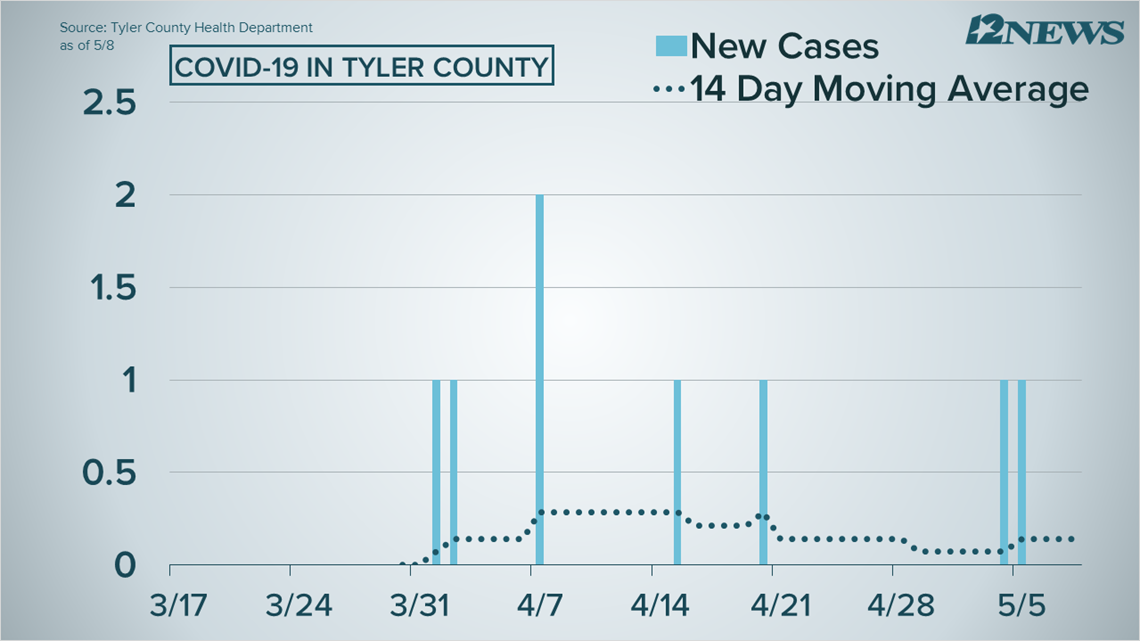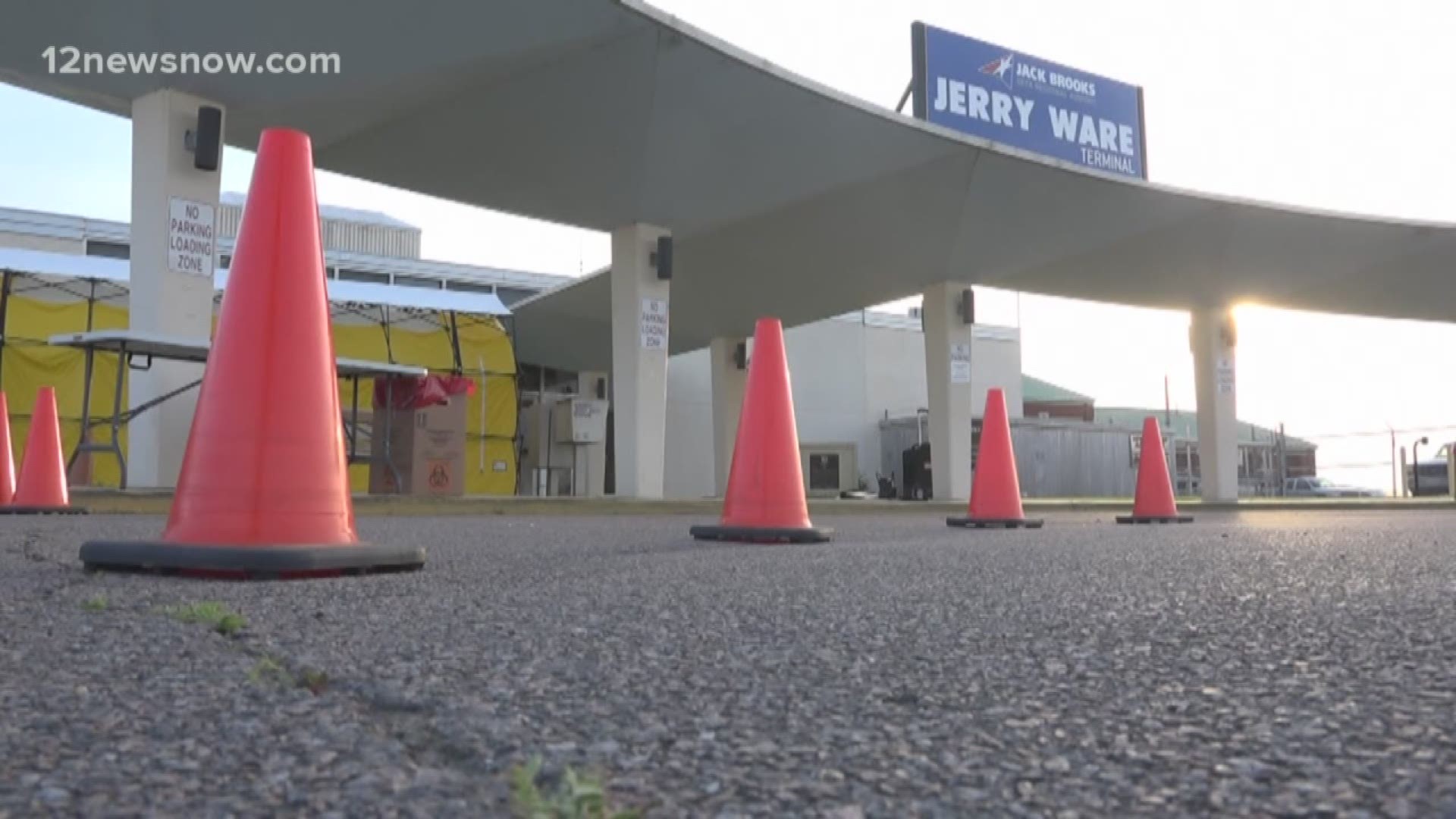WOODVILLE, Texas — There have been two new coronavirus cases in Tyler County in the last 14 days.
Currently five people have recovered leaving three active cases in the county.
A 14-day rolling average of news cases in the county has stayed fairly flat according to data received from the county.
The county reported its latest two cases on May 4, 2020, and the next day bringing the total reported cases in the county to eight.
The county reported its first positive case on March 30, 2020.
Tyler County has reported no fatalities so far related to the virus.
The names of those testing positive are not being released due to patient privacy laws.


The federal guidelines for opening up a state or region look at three areas to determine if it’s safe to reopen according to the White House website.
- Symptoms
- Downward trajectory of influenza-like illnesses (ILI) reported within a 14-day period
- AND
- Downward trajectory of covid-like syndromic cases reported within a 14-day period
- Cases
- Downward trajectory of documented cases within a 14-day period
- OR
- Downward trajectory of positive tests as a percent of total tests within a 14-day period (flat or increasing volume of tests)
- Hospitals
- Treat all patients without crisis care
- AND
- Robust testing program in place for at-risk healthcare workers, including emerging antibody testing
12News is keeping track of positive cases in eight Southeast Texas counties including Chambers, Hardin, Jasper, Jefferson, Liberty, Newton, Orange, and Tyler Counties.
Coronavirus symptoms
The symptoms of coronavirus can be similar to the flu or a bad cold. Symptoms include a fever, cough and shortness of breath, according to the Centers for Disease Control.
Most healthy people will have mild symptoms. A study of more than 72,000 patients by the Centers for Disease Control in China showed 80 percent of the cases there were mild.
But infections can cause pneumonia, severe acute respiratory syndrome, kidney failure and even death, according to the World Health Organization. Older people with underlying health conditions are most at risk.
The CDC believes symptoms may appear anywhere from two to 14 days after being exposed.
RELATED: VERIFY: No, members of Congress who are self-quarantined for coronavirus cannot vote remotely
Human coronaviruses are usually spread through...
- The air by coughing or sneezing
- Close personal contact, such as touching or shaking hands
- Touching an object or surface with the virus on it, then touching your mouth, nose or eyes before washing your hands.
Help stop the spread of coronavirus
- Stay home when you are sick.
- Eat and sleep separately from your family members
- Use different utensils and dishes
- Cover your cough or sneeze with your arm, not your hand.
- If you use a tissue, throw it in the trash
Lower your risk
- Wash your hands often with soap and water for at least 20 seconds. If soap and water are not available, use an alcohol-based hand sanitizer.
- Avoid touching your eyes, nose, and mouth with unwashed hands.
- Avoid close contact with people who are sick.
- Clean and disinfect frequently touched objects and surfaces.
- If you are 60 or over and have an underlying health condition such as cardiovascular disease, diabetes or respiratory illnesses like asthma or COPD, the World Health Organization advises you to try to avoid crowds or places where you might interact with people who are sick.

